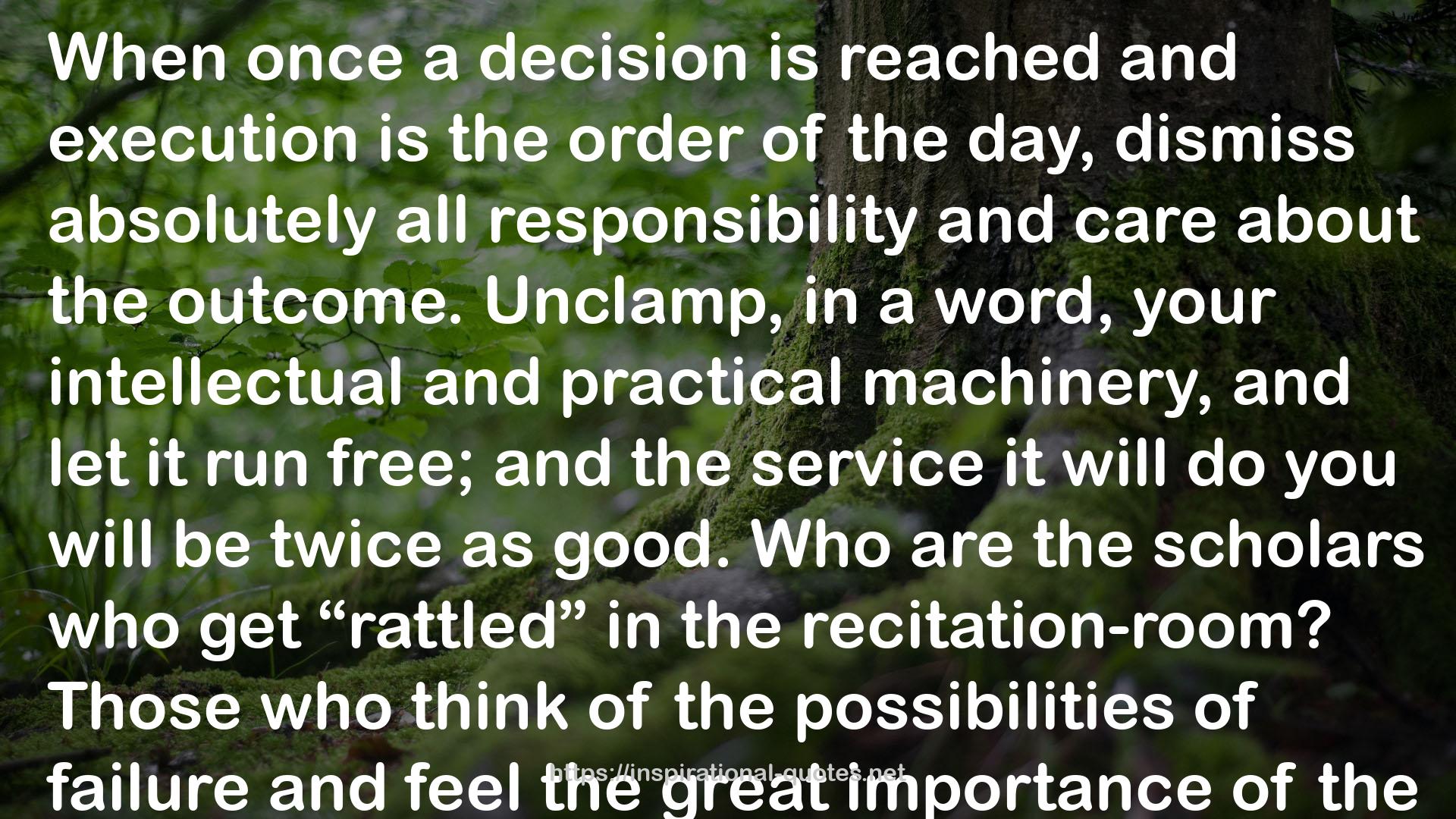" When once a decision is reached and execution is the order of the day, dismiss absolutely all responsibility and care about the outcome. Unclamp, in a word, your intellectual and practical machinery, and let it run free; and the service it will do you will be twice as good. Who are the scholars who get “rattled” in the recitation-room? Those who think of the possibilities of failure and feel the great importance of the act. Who are those who do recite well? Often those who are most indifferent. Their ideas reel themselves out of their memory of their own accord. Why do we hear the complaint so often that social life in New England is either less rich and expressive or more fatiguing than it is in some other parts of the world? To what is the fact, if fact it be, due unless to the overactive conscience of the people, afraid of either saying something too trivial and obvious, or something insincere, or something unworthy of one’s interlocutor, or something in some way or other not adequate to the occasion? How can conversation possibly steer itself through such a sea of responsibilities and inhibitions as this? On the other hand, conversation does flourish and society is refreshing, and neither dull on the one hand nor exhausting from its effort on the other, wherever people forget their scruples and take the brakes off their hearts, and let their tongues wag as automatically and irresponsibly as they will. "
― William James ,
Image for Quotes

